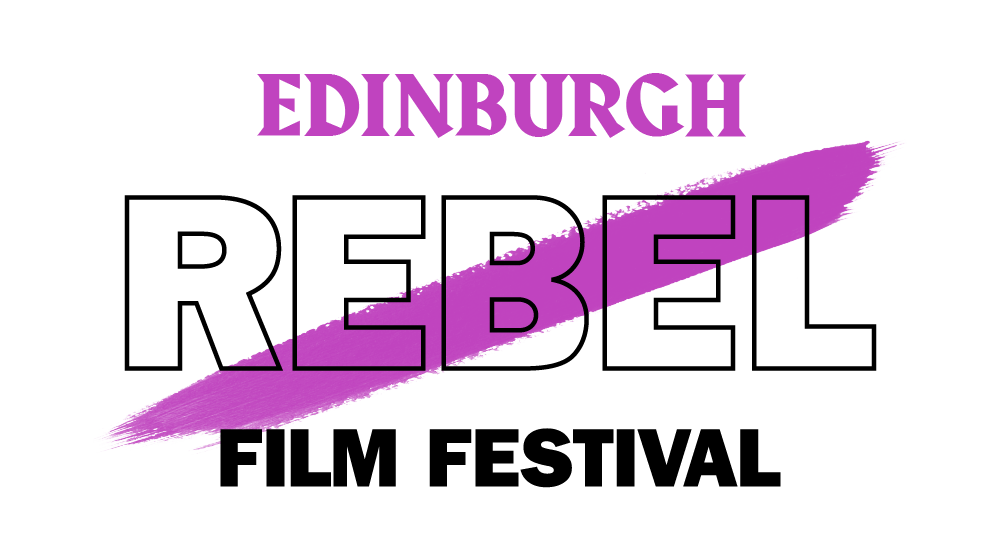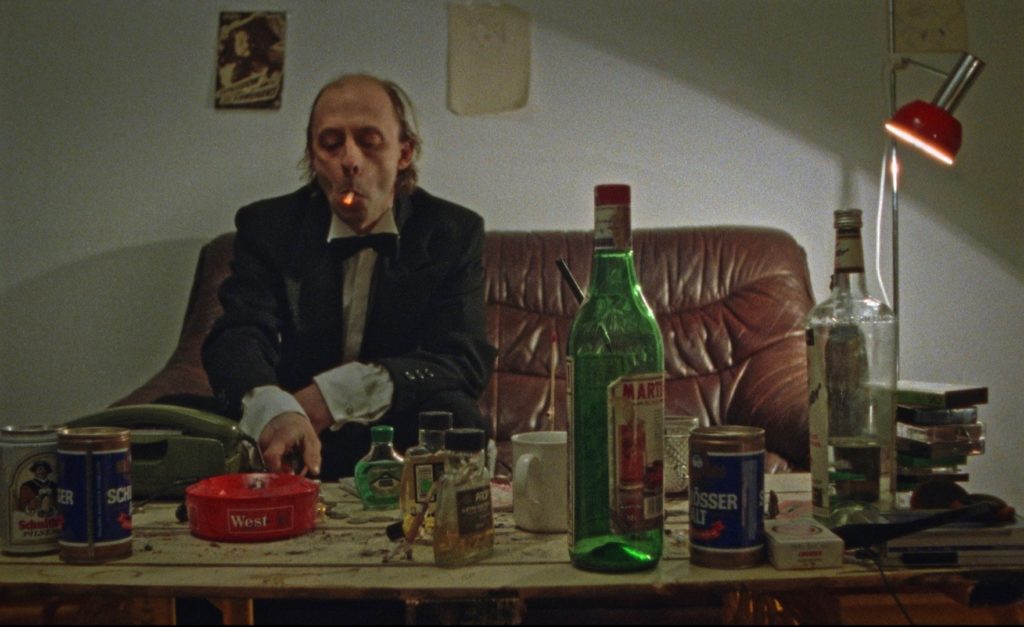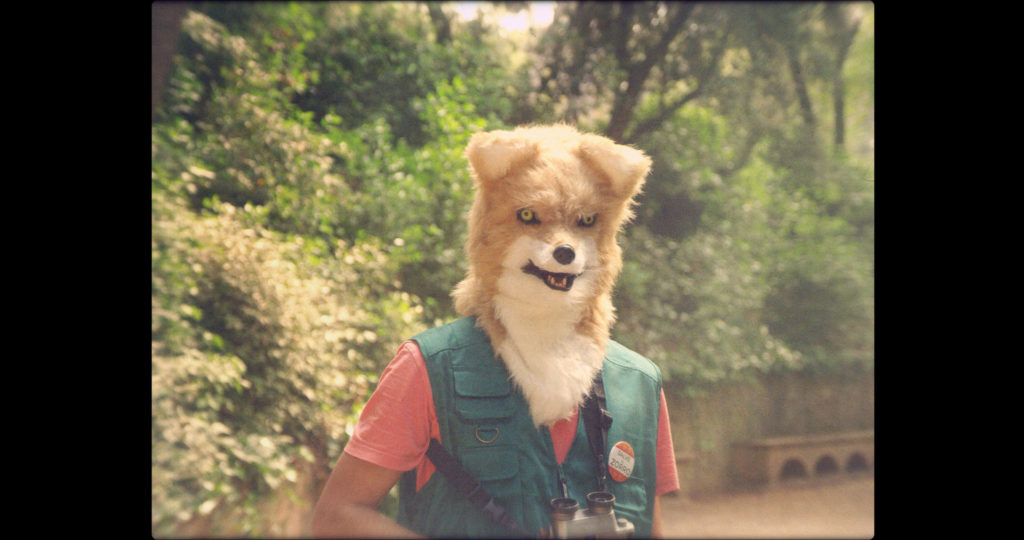Over the weekend of the 5th and 6th October, the Rebel Film Festival made its way to Edinburgh for the first time. A festival that supports independent filmmakers from all over the world, they screened their programme of short films throughout both days in the Cameo picture house, the Scottish capital’s oldest cinema. Prior to the festival starting, the Rebel-affiliated directors chose some of their favourite shorts from the last six years of Rebel, curating them together into one screening meant to open the Edinburgh festival.
The first of these was Le Skate Moderne (2014), a French short that blends fact and fiction into an absorbing and curious story. This is followed by the meticulously crafted and moving Backstory (2016), before there is a change in tone with the funny and more upbeat One-Minute Time Machine (2014). Rounding out this collection are They Are Nobody (2014), a tightly wound and tense character exploration, and Vétérane (2017), a short film about an escort who finds work in Montreal, and winner of the Roger Deakins award.

The main programme is organised around a collection of deliberately vague themes that indicate something about the subject matter of the films included in them. The first of these is entitled ‘The Stuff That Dreams are Made of,’ and features a number of quietly fantastical entries. The first of these is Mascarpone (2018), what you might call an ‘accidental’ gangster flick. This is followed by Glory Daze (2018), in which a clash of filmmaking ideologies provides the meat of this short but attention-grabbing drama. The third film in this collection is a documentary about the recording of Curse of Lono’s second album, Somewhere in Their Heads (2018), featuring some personal and troubling stories as well as an insight into the album’s creation. This first collection is rounded off by Background (2018), a film about attraction that encourages you to focus on the details that aren’t immediately obvious.
The festival starts strongly then… or, at least, it should. As it happens neither the Best of Rebel collection or ‘The Stuff That Dreams are Made of’ were able to go ahead due to difficulties accessing the venue on the first day. After some delay, the festival officially started with the third collection of films, ‘You Talkin’ to Me?’ P.O.V. (2018) opens this collection, a fairly simple story of urbanites hooking up told through the unique and slightly disorientating perspective of first-person camera shots. Hearth (2019) pulls the great horror trick of leaving you feeling very paranoid – you’ll think twice before letting your home out as an AirBnB. Knock at the Door (2018) blends genuine unease with a stupidly satisfying, pulpy finale. This is a far cry from the next entry, Mayday Relay (2016), a sincerely told moral dilemma played out in the middle of the Mediterranean Sea. The final film of this collection is Strange Sounds (2018), a short story about heightened tensions and how noise can speak volumes for different life experiences.
The second collection, ‘I Want to Be Alone,’ tackles isolation, disconnection and their parts in a dramatic story. Ella (2018) is a sombre story of loneliness but one told with sensational uses of colour and symbolism. Paynes Find (2018) is one of the most thrilling entries, a creepy story of kidnap for reasons unknown set in the middle of the Australian outback. Dear Stranger (2019) is one of the most endearing entries, a short tale of communication and loneliness imposed in very different ways, shot with more than a flavour of Wes Anderson’s unique style. The final film is a low-key comedy drama, Midnight Confession (2017), in which a strangely dressed (and undressed) man skulks around his apartment in 1989 West Berlin trying to reconnect with old friends. The poetics of the West Berlin setting cannot be overlooked in a short film that rides heavily on themes such as reconnection and trust.

The final film of the first day is the only feature length film on the programme, South African Spook Hunter (2018). It takes the same kind of mockumentary style seen in What We Do in the Shadows (2014) and applies it to the ridiculousness of the ghost-hunting ‘true life’ television shows that proliferate free TV channels. In the process it pokes fun at believing everything you see on television in general. It makes for a surprisingly good time, with some good humour and twists that make for a lighter affair compared to most of the other films Rebel have brought together.
The first collection of the Sunday is ‘You’re Gonna Need a Bigger Boat,’ featuring films that in some way address the environment. The festival openly admit in their programme that the environment is a mess, but refreshingly the films selected do not overwhelmingly side with doom and pessimism. The Beeman (2018) follows an enthusiastic conservationist who saves unwanted bee hives from being destroyed. He clearly has a deep connection to the bees and how they experience the world, an undercurrent felt broadly in all of the films in this collection. Bottle Boy (2018) is a brisk two minutes and ends on an unexpected comedy note, feeling more like an environmental campaign infomercial than a short film. Timbo (2017) is a gloriously shot piece of ethnographic filmmaking with some effective use of slow motion, documenting a brief look at the lives of some of Brazil’s indigenous population, faced with the threat of increasing industrialisation. The slightly bizarre The Traffic Separating Device (2018) feels like a slightly amusing and mundane portrait of everyday stupidity. However beneath the surface of this there might be a wider point to be made about human bullishness and how easily we attempt to ignore obvious changes in our environment. This collection ends with the beautifully filmed and gloriously scored Herzblut (2018). It is a simple yet deeply stirring portrait of traditional craftsmanship and living as one with the landscape, dedicated to those who shared their lives with the film crew.

The penultimate collection, ‘After All, Tomorrow Is Another Day,’ features some of the strangest films on the programme but also some that leave the greatest impact on you. The People Under the Bridge (2018) is a short documentary about the forced removal of a small homeless population from underneath Sydney’s Wentworth Park Bridge. The film states that it is not taking sides, other than perhaps the vague side of human decency, and packs a lot of thought-provoking content into a short running time. Blood Orange (2018) might not win over everyone with its writing, but it has a phenomenal, quirky horror vibe that is sensational to look at. Irony (2018) is a powerful and wonderfully animated confrontation of our addiction to technology, one that resonates heavily in an age of digital immersion and where you project your life to an audience of millions almost every day. Exposure (2018) addresses the normalisation of drugs in a university context, told through a vivid colour pallet and some stylish animation. The final entry is also the trippiest; Your Last Day on Earth (2019). A man dressed as a fox is promised time travel, but the reality proves not as simple as that in this dystopian sci-fi crime drama. It looks phenomenal, and is profoundly absorbing for such a short movie.

No prizes for guessing what the final collection, ‘What We Have Here is a Failure to Communicate,’ is about. Generations (2018) is a moving portrait of family rifts and age differences, with a son reluctantly taking his father on a road trip. The Captain (2018) is a heart-warming but dramatic story about a father wanting to prove to his son that he is still ‘the man,’ yet cannot express in words the struggle he has undergone. The father-son relationship comes to a head when he dangerously attempts to prove that he’s still got it. Following this, kitchen sink realism meets offbeat comedy with Selsey Bill (2018), in which two estranged brothers meet in the wake of a family tragedy. One of the festival’s most popular entries is Hands Free (2018), a ridiculous, hilarious and eventful portrait of social elitism gone mad and the measures some will go to for success. The closing short of the festival is the quiet (literally) A Halt (2016), told almost without dialogue as two people communicate through sign and mime through a bus window. What it lacks in volume, it more than makes up for in significance and volume.
The festival directors expressed an interest in returning to Edinburgh in the future, and for good reason. While logistically the festival might not have been smooth sailing, the continued presence of the Edinburgh International Film Festival and the various successful picture houses across the city point to an audience eager for events like this. Rebel curate a sensational array of short films from all over the world, each one offering its own take on contemporary life and all coming from up-and-coming directors. Rebel promises a weekend that is very easy to enjoy, leaving you with lasting memories and new ideas on what makes a good movie.
